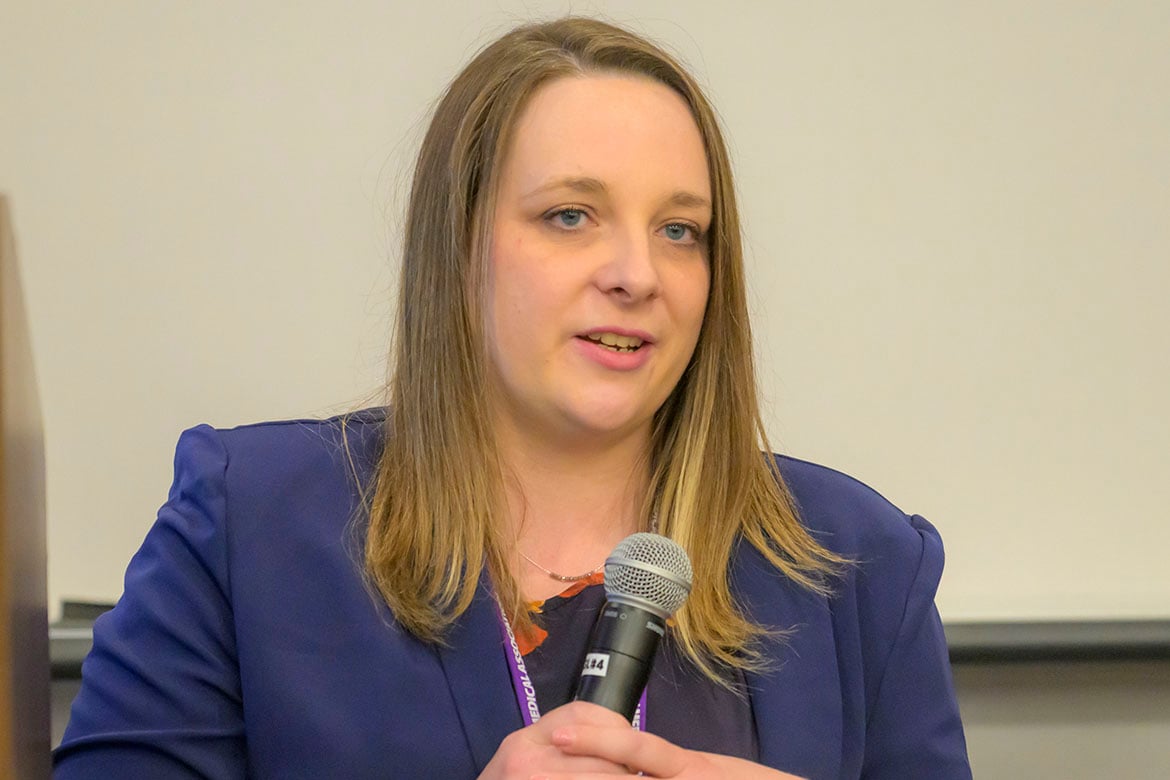The residency-selection process comes with many different factors that applicants must consider. For medical students who also are parents, a residency program’s friendliness to residents with children is going to be near the top of that list.
A panel of medical students, residents and attending physicians recently offered some guidance on how medical student parents should approach the Match.
The AMA helps medical students master the residency-application process so you can make the right decisions about your career, prepare for a knockout interview, explore residency opportunities—all so you can successfully match.
Ask that critical question
Medical students planning on building or growing their family during residency should know that residency programs are required to disclose their parental leave policies to all applicants. But, according to AMA member Sarah Costello, MD, finding out the day-to-day realities of residency training as a parent usually requires speaking to those who are going through the process in that particular program.
“Family medicine is a very family-friendly specialty, so I felt comfortable asking: ‘Do other residents have kids?’” said Dr. Costello, an intern at the University of Iowa Health Care who was one of the panelists in an AMA Medical Student Section discussion held last month at the 2024 AMA Annual Meeting. “Resident socials are a great place to have those conversations, often, or if they don’t do a social there are often more informal chances to speak to the residents, where none of what's discussed goes towards their ranking. That's a great opportunity to have a conversation and feel out what it is like” to parent in a program.
As applicants embark on the residency-selection process, no online resource contains as much information as FREIDA™, the AMA Residency and Fellowship Database®, which includes more than 13,000 Accreditation Council for Graduate Medical Education-accredited residency programs, and offers a streamlined user experience.
Dive deeper:
- Mastering M4: Top questions for your fourth year of medical school
- 4 tips for juggling GME training and becoming a new parent
Family-friendly programs often advertise the fact
A mother of three who had two children during residency, Emily Cleveland Manchanda, MD, MPH, said that family-friendly programs will usually offer information about their openness to having resident parents in their institution.
“It depends on the specialty that you're going into, and it depends on what program, but many residency programs that are family friendly will have that as a part of their webpage,” said Dr. Cleveland Manchanda, assistant professor of emergency medicine at the Boston University Chobanian & Avedisian School of Medicine. “They'll have that advertised. They might mention a parent’s group. You can see kids in their social photos. That's one way to gauge it.”
Dive deeper:
Peers who are parents can help
When considering potential support networks available to you, keep in mind that being around other parents during residency can offer an informal support system.
“If you're entering a residency program where lots of residents have kids, that can make it easier. In the Boston Medical Center emergency medicine program where I’m faculty, lots of us have kids, either young faculty or residents,” said Dr. Cleveland Manchanda. “And so there's a ton of sharing of stuff—like one of my PGY-4 residents just picked up another several buckets of kids' clothes because my kids are grown, and his first was just born. That all just gets passed on and around.
“Some of those immaterial or material supports that are not structured can also make a real difference in how easy it is to have kids at different points in training.”
Consider child care
If a household consists of two working parents, childcare is going to be required. For some applicants, this influences their decision to rank programs that are closer to family. But if that is not an option, it’s good to consider the options even before you know where you match.
“If you do have kids when you're doing your residency interviews, or are planning to, it's a good idea to ask about childcare in the area and availability,” Dr. Costello said, noting that in many places there are frustrating long wait lists for child care. “If you're thinking about going someplace or ranking a place high, it might even be worth getting on a wait list.”
Dive deeper:
Aways are tough
The significance of away rotations varies by specialty. In some specialties they are unnecessary. In others, they are almost requisite.
As a parent preparing for residency selection, your bandwidth to do away rotations may be limited.
“I wouldn't say it was a big deciding factor in my decision to go into family medicine, but it definitely helped that family medicine didn't have away rotations,” Dr. Costello said. “So that's something to consider because an away rotation, I imagine, would be very hard if you were a parent.”
Dive deeper:





